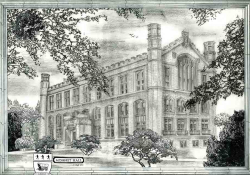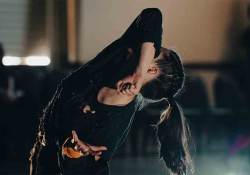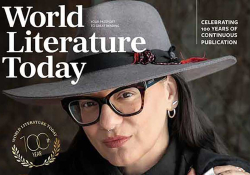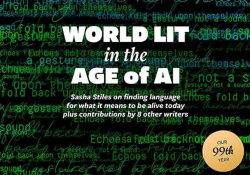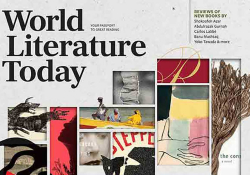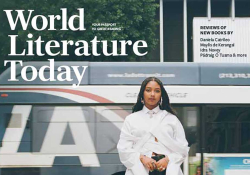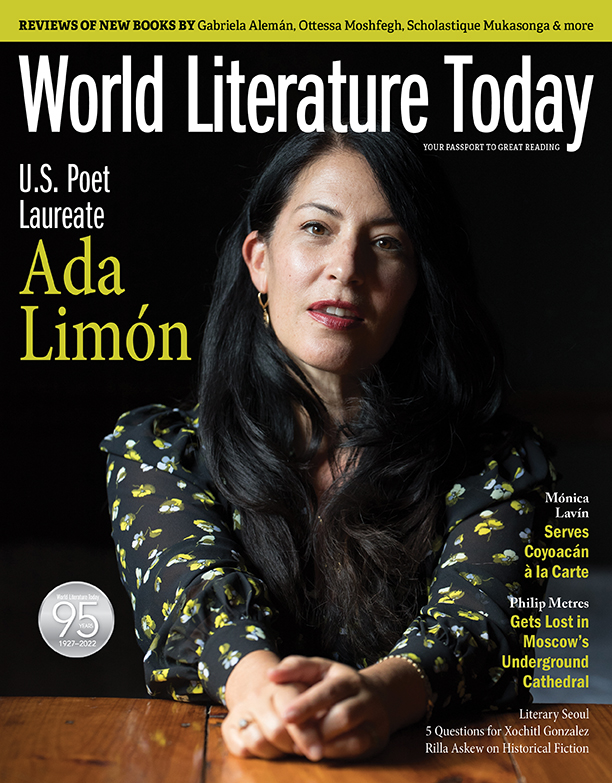Editor’s Note
All of this // is a conjuring. . . .
There is evidence everywhere.
– Ada Limón, “The Hurting Kind”
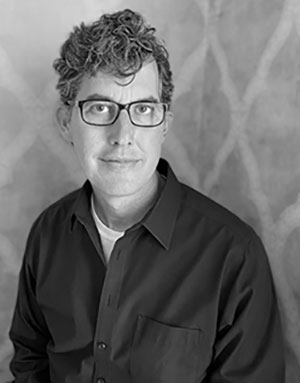 SEVERAL OF MY favorite poems in The Hurting Kind (2022), Ada Limón’s most recent verse collection, are from the “Fall” section, which seems fitting for this time of year. Just this week (as I write this), one week after the autumnal equinox, Limón will deliver her inaugural reading as the 24th Poet Laureate Consultant in Poetry to the Library of Congress. To commemorate and celebrate such a milestone, we’re publishing the excellent interview with Limón that Chard deNiord conducted with her in late August, soon after the announcement of her appointment. Complementing the many rich themes that mark their conversation—mortality and aliveness, the multiple allegiances that come with citizenship, duende and truth-telling, gratitude and presence and awe—I’m struck that in a poem like “My Father’s Mustache,” full of “ache and unraveling,” Limón reminds us of the seasons of life: “Is it time / that moves in me now?” Elsewhere she writes: “I am reminded / of the righteousness I had before the scorch / of time” (“Salvage”). Like a modern Penelope who also shapeshifts and wanders like Odysseus, in poem after beautiful poem, Limón ravels and unravels time right before our eyes.
SEVERAL OF MY favorite poems in The Hurting Kind (2022), Ada Limón’s most recent verse collection, are from the “Fall” section, which seems fitting for this time of year. Just this week (as I write this), one week after the autumnal equinox, Limón will deliver her inaugural reading as the 24th Poet Laureate Consultant in Poetry to the Library of Congress. To commemorate and celebrate such a milestone, we’re publishing the excellent interview with Limón that Chard deNiord conducted with her in late August, soon after the announcement of her appointment. Complementing the many rich themes that mark their conversation—mortality and aliveness, the multiple allegiances that come with citizenship, duende and truth-telling, gratitude and presence and awe—I’m struck that in a poem like “My Father’s Mustache,” full of “ache and unraveling,” Limón reminds us of the seasons of life: “Is it time / that moves in me now?” Elsewhere she writes: “I am reminded / of the righteousness I had before the scorch / of time” (“Salvage”). Like a modern Penelope who also shapeshifts and wanders like Odysseus, in poem after beautiful poem, Limón ravels and unravels time right before our eyes.
In her role as standard bearer while fulfilling her role as US poet laureate, Limón will naturally serve as a national spokesperson for the genre, but she also identifies as a “citizen of the planet,” declaring her allegiance to both the natural world as well as to an international range of poets from throughout the Americas and beyond: “Singing Back to the World,” for Limón, means not only singing the world but also enlarging the American literary landscape with the poetry of Sor Juana Inés de la Cruz, Federico García Lorca, Gabriela Mistral, Pablo Neruda, Alejandra Pizarnik, and others. And as she sings the “world” in world literature, Limón further reflects the diversity of her recent poet laureate predecessors with songs that resonate on a global scale.
Indeed, that global purview manifests throughout the pages of this issue: writers from Hungary, Israel, Italy, Mexico, Taiwan, and the US are featured here, while other pieces take readers to Canada, Chile, Germany, Iraq, South Korea, and late Soviet-era Russia, not to mention the nearly three dozen “geographies of the mind” featured in the book review section. With this latest offering of WLT, we are excited to launch an ambitious new editorial initiative to offer a greater number of shorter pieces to help further diversify the magazine’s coverage and facilitate reader engagement from a wider variety of cultural angles—in addition to our usual lineup of essays, poetry, fiction, and creative nonfiction, the editors invite you to check out the “5 Questions” mini-interviews with Xochitl Gonzalez and Mónica Lavín; three bookish visits to Seoul in South Korea, Valdivia in Chile, and Victoria in British Columbia; the Bauhaus textile art of Anni Albers; Bunmi Ishola’s dispatch from Santa Fe in our new “Postcards” series; and the must-read works of historical fiction recommended by Rilla Askew, who pays tribute to the late Hilary Mantel’s mastery of the genre (and whose own new novel, Prize for the Fire, is reviewed on page 61).
As we conclude the calendar year, it also seems fitting to express our deep gratitude for the extraordinary generosity and ongoing support of the countless readers who validate the work we do. We see that work as an extension of the contributions by our benefactors, the University of Oklahoma colleagues who serve as contributing editors and members of our advisory board, our editorial board, WLT’s dedicated support staff, and the many writers, translators, artists, and scholars who multiply our efforts and enable us to extend our reach into nearly every corner of the globe. To one and all, we say: thank you!
